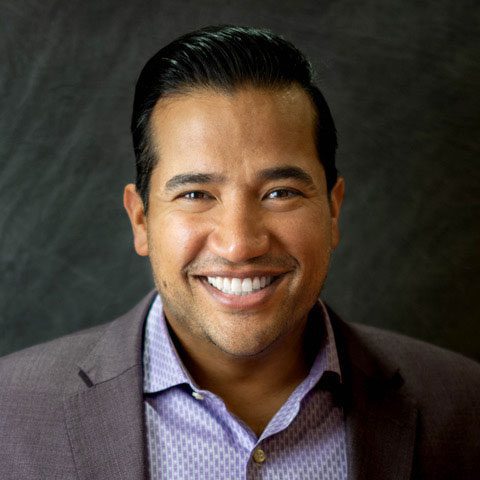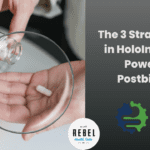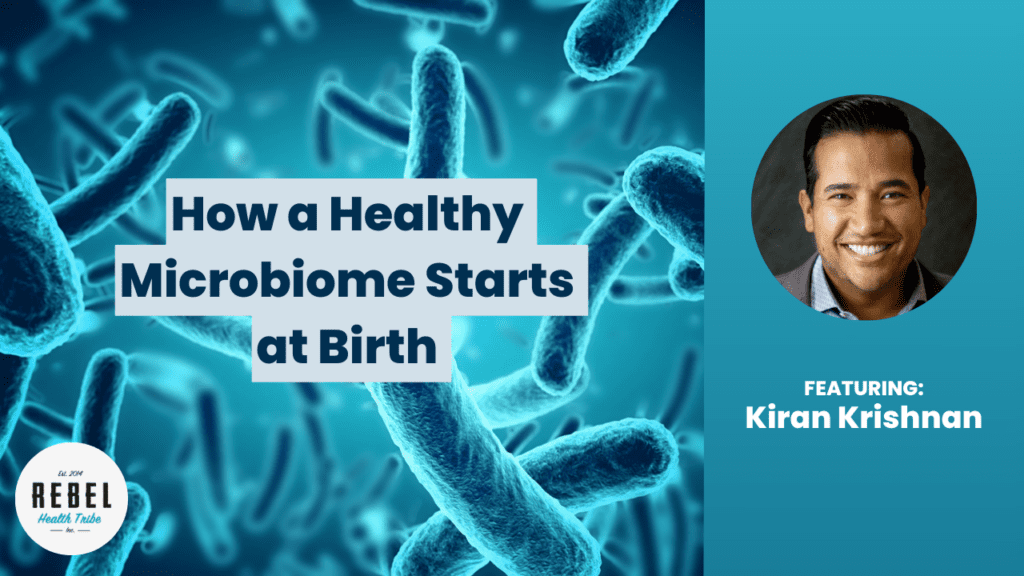
Play Video
How a Healthy Microbiome Starts at Birth
Webinar Transcript
Kiran Krishnan:
We’ve got 100 trillion organisms that live in and on us. We’ve got 10 trillion cells that make up the entire human body. From a cellular standpoint, we are 10 times more bacteria than we’re human actually. And so then the question is, well, where do they come from? And if we each have a unique microbiome, then how is it that we’ve developed this unique microbiome? What they found is that, number one, the idea used to be that in utero, everything was sterile, that the baby was sterile in utero, there was no bacteria in there. It’s a very serene and pristine environment. But what they’re starting to find now is there’s actually inoculation of the baby’s gut and the body and the internal systems by mother’s gut bacteria. There’s actually immune cells that’ll go to the mom’s gut, grab good bacteria from her gut, transport them through the umbilical cord into the fetus.
That’s such a specific system in place, just to get the baby’s body ready for this big inoculum that’s coming. And so then the big inoculum comes in during childbirth itself, passing through the birth canal. And here’s another interesting fact. When you look at the birth canal in an unpregnant woman, vaginal bacteria is very different than gut bacteria of course, because you’re not digesting anything down there and there’s a very different environment. But at the end of the first trimester of pregnancy, there’s a huge shift in the vaginal bacteria population. And in fact, the vaginal bacteria population starts to mimic the gut bacteria population. One very interesting bacteria that tends to grow in much higher numbers now, in the vaginal bacteria, is a species called Lactobacillus jensenii. The primary role of Lactobacillus jensenii is to digest milk. You may ask yourself, what is a milk digesting bacteria doing down there?
And so it’s really there just to prepare the fetus for life in the world, because what’s the first thing a baby drinks is milk, from Mom. And so the pregnant woman’s birth canal is shifted to reflect more her digestive bacteria, and then as the baby passes through the birth canal, it gets a huge inoculum of that bacteria. It swallows it, it’s all over its skin and body, and that’s the initial huge inoculum that you get from Mom. Most of the bacteria you get, you get from your mom. Now, the second part of it is the close interaction with Mom. I think a lot of people have heard the whole importance of skin-to-skin contact. That skin-to-skin contact is actually important for the inoculating the baby’s skin with friendly skin based bacteria from Mom.
And then the second part is the breastfeeding itself. Breast milk contains 400 to 600 different species of bacteria, and what’s fascinating is the biggest nutrient within breast milk are oligosaccharides. These are basically nondigestible sugars that the baby can’t digest. The baby can’t use these for energy, it’s purely there as a prebiotic to seed the bacteria that you got from your mom. One of the biggest nutritional components of breast milk is a prebiotic for the gut bacteria that the baby just got from Mom. That’s fascinating. What they’ve shown is about 868 days after birth and breastfeeding and all that, you end up with your adult microbiota. Close to three years is what it takes for you to end up with your adult functioning microbiota.
And then what’s interesting now, the way we develop the uniqueness from each individual, because let’s say you take a set of twins; they both got the same microbes from Mom, yet they end up with different species diversity. There is some sort of co-selection process that’s going on. When your body is introduced to all this bacteria, your body’s immune system has a co-selection process where it chooses the kind of bacteria that it wants to allow to take seed and live within your gut. The ones that it doesn’t choose, it rejects. This co-selection process is kind of a tissue compatibility type of thing, which is not really well understood yet, but that’s really where the diversity comes in. You give person A and person B the same inoculum, 800 days later, they have different species of bacteria, because their body selected for different ones.

Kiran Krishnan
About our Guest
Kiran Krishnan is a Research Microbiologist and has been involved in the dietary supplement and nutrition market for the past 17 years. He comes from a strict research background having spent several years with hands-on R&D in the fields of molecular medicine and microbiology at the University of Iowa. He left University research to take a position as the U.S. Business Development and Product Development lead for Amano Enzyme, USA. Amano is one of the world’s largest suppliers of therapeutic enzymes used in the dietary supplement and pharmaceutical industries in North America. Kiran also established a Clinical Research Organization where he designed and conducted dozens of human clinical trials in human nutrition.
Kiran is also a co-founder and partner in Nu Science Trading, LLC.; a nutritional technology development, research and marketing company in the U.S. Dietary Supplement and Medical Food markets. Most recently, Kiran is acting as the Chief Scientific Officer at Physician’s Exclusive, LLC. and Microbiome Labs. He has developed over 50 private label nutritional products for small to large brands in the global market. He is a frequent lecturer on the Human Microbiome at Medical and Nutrition Conferences. He conducts the popular monthly Microbiome Series Webinars through the Rebel Health Tribe Group practitioner training program, is an expert guest on National Radio and Satellite radio and has been a guest speaker on several Health Summits as a microbiome expert. He is currently involved in 9 novel human clinical trials on probiotics and the human microbiome.
Kiran is also on the Scientific Advisory Board for 5 other companies in the industry. Kiran offers his extensive knowledge and practical application of the latest science on the human microbiome as it relates to health and wellness.







